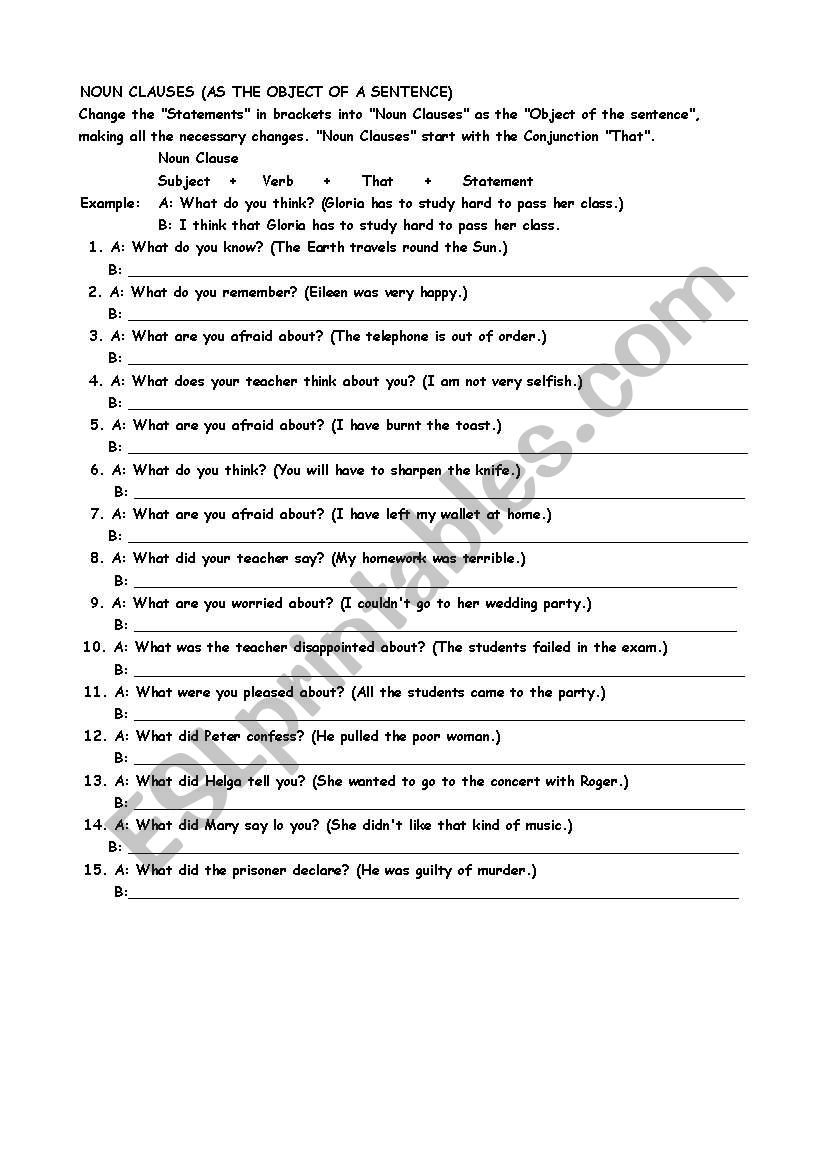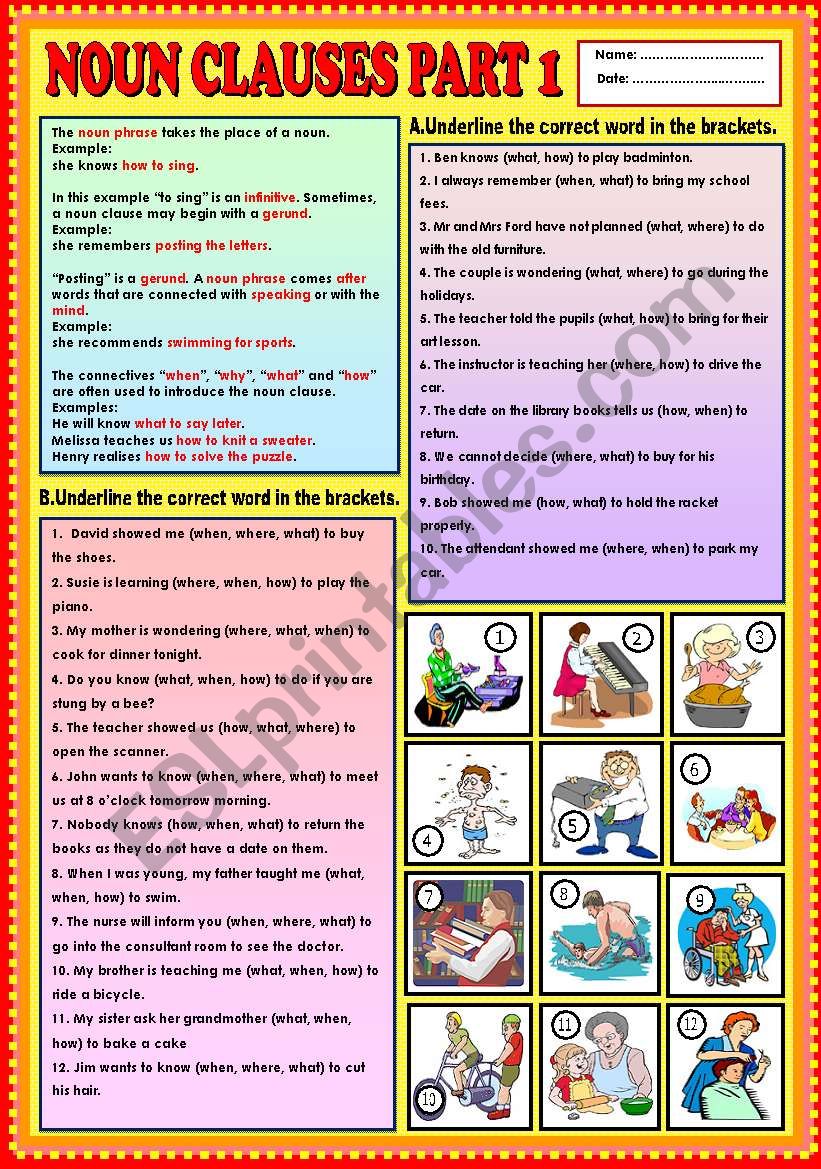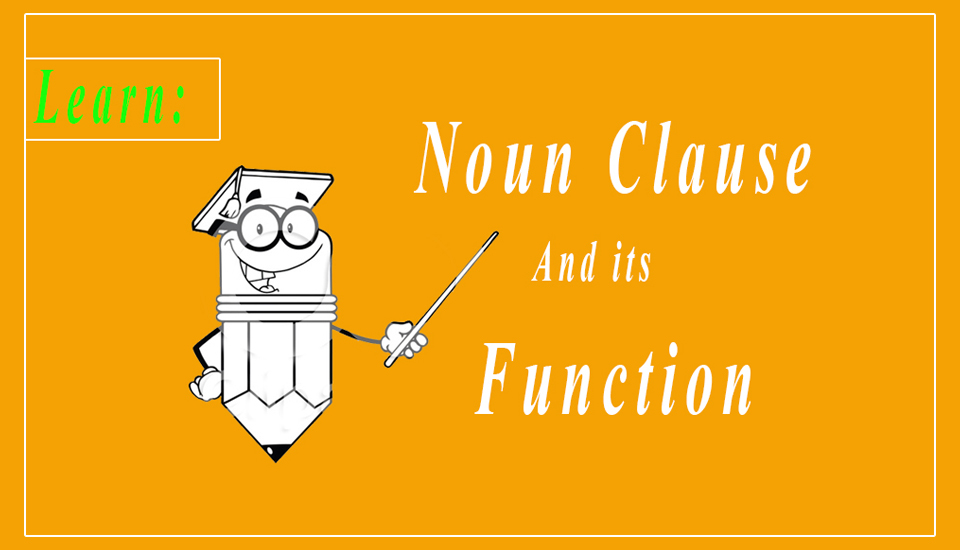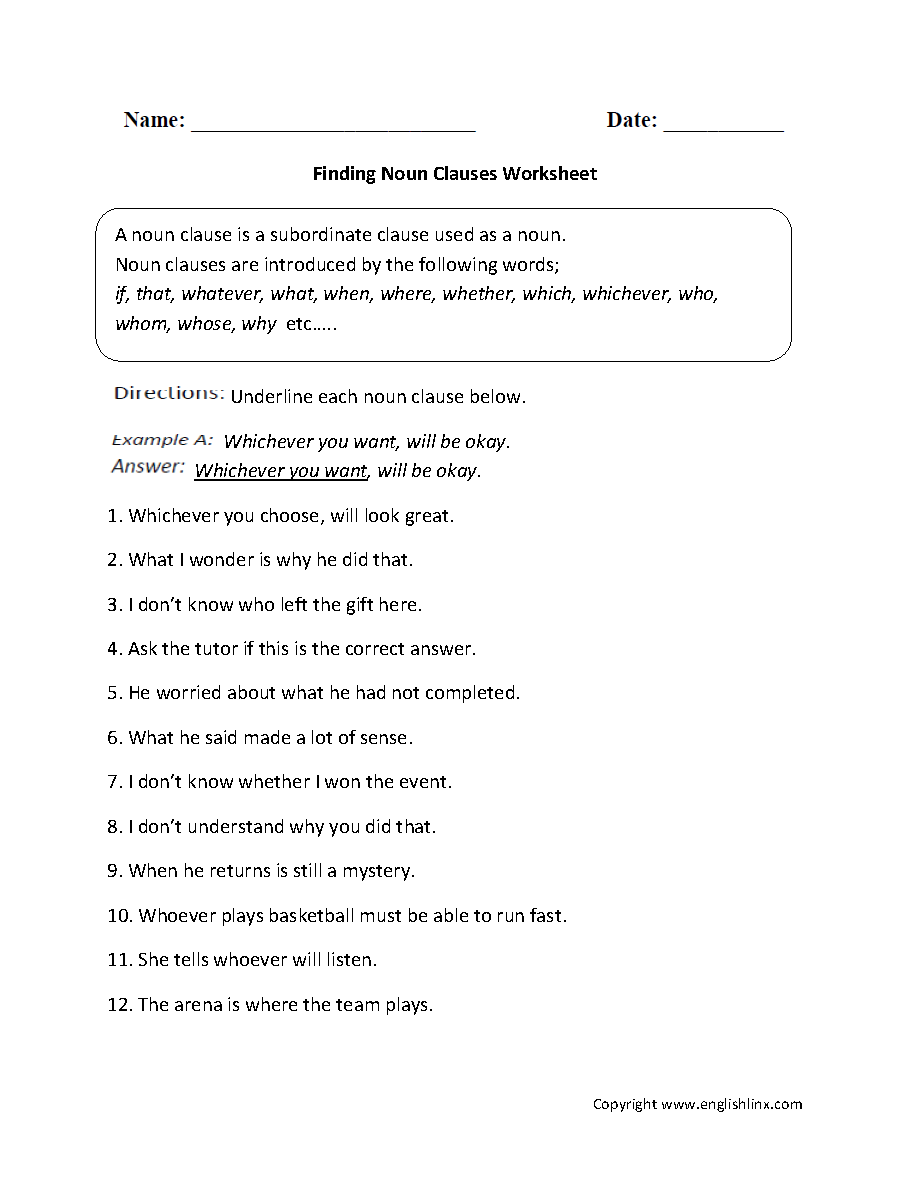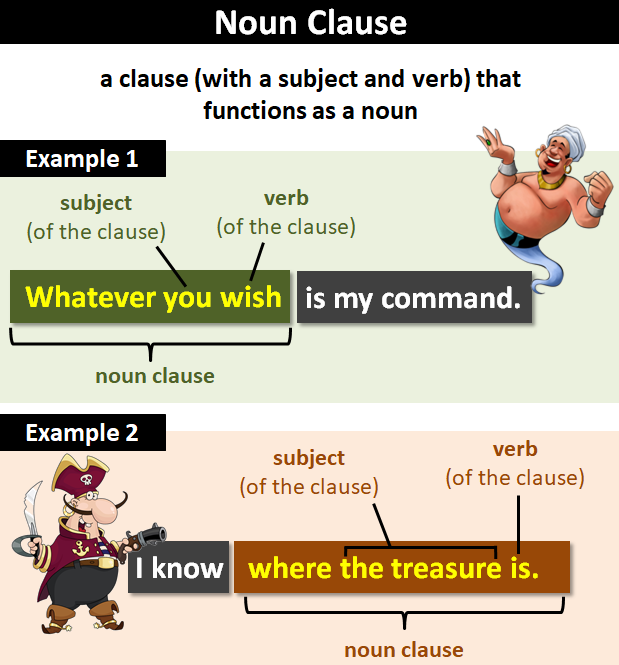Noun clauses are a type of subordinate clause that function as nouns in a sentence. They typically begin with words such as "that," "what," "who," "whom," "whose," "which," or "where." Noun clauses often follow verbs that indicate thinking, believing, knowing, or understanding, such as "think," "believe," "know," or "understand."
For example, consider the sentence "I know what you mean." In this sentence, the noun clause "what you mean" functions as the object of the verb "know." Similarly, in the sentence "I believe that he is telling the truth," the noun clause "that he is telling the truth" functions as the object of the verb "believe."
Noun clauses can also act as the subject of a sentence. For example, in the sentence "What he said made me angry," the noun clause "what he said" is the subject of the sentence.
In addition to acting as the subject or object of a verb, noun clauses can also function as the object of a preposition. For example, in the sentence "I'm not sure about what he said," the noun clause "what he said" is the object of the preposition "about."
It is important to note that noun clauses cannot stand alone as a complete sentence. They must be connected to an independent clause to form a complete sentence. For example, the noun clause "that he is telling the truth" cannot stand alone, but when connected to an independent clause such as "I believe," it becomes a complete sentence: "I believe that he is telling the truth."
Overall, noun clauses serve an important role in constructing complex sentences and adding depth and detail to our communication. They allow us to convey information about what we think, believe, know, or understand, and provide important context for understanding the meaning of a sentence.
